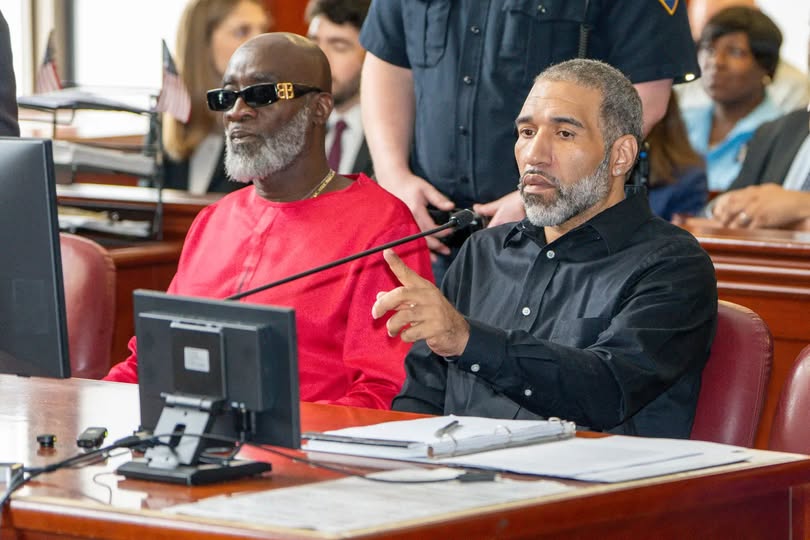JUSTICE DELAYED, NOT DENIED: TWO NEW YORK MEN EXONERATED AFTER 30 YEARS FOR WRONGFUL MURDER CONVICTION
NEW YORK, NY — In a powerful courtroom moment decades in the making, Charles Collins, 49, and Brian Boles, 48, walked free with their names finally cleared after spending a combined 53 years in prison for a murder they did not commit.
The two men were convicted in 1994 for a homicide in Brooklyn that has now been proven they had no part in. The conviction was based almost entirely on coerced confessions, and lacked any physical or forensic evidence. This week, a New York judge vacated their convictions, citing newly uncovered DNA evidence and suppressed police reports that discredit the original case.
A CASE BUILT ON LIES AND COERCION
Brian Boles was just 17 years old when he was interrogated by police — alone, without a lawyer or guardian, and under extreme pressure. According to his legal team, officers used sleep deprivation, threats, and manipulation to extract a confession. Charles Collins, 18 at the time, was later implicated based on Boles’ forced statement and also confessed under similar duress.
Their confessions were the sole foundation of the prosecution’s case. There were no eyewitnesses, no physical evidence, and no motive. Despite this, both were convicted and sentenced to long prison terms — Boles to 30 years, and Collins to 23 years.
Boles remained behind bars until 2025. Collins was released on parole after 23 years, but the conviction continued to haunt his life, limiting opportunities and freedom.
DNA EVIDENCE AND HIDDEN RECORDS CHANGE EVERYTHING
In 2025, attorneys with the Innocence Project and New York legal advocacy groups petitioned the court to conduct new DNA testing using advanced technology unavailable in the 1990s. The testing revealed that DNA found under the victim’s fingernails — assumed to have come from her attacker — belonged to an unidentified man, not Boles or Collins.
Even more troubling, the legal team uncovered suppressed police reports that contradicted the timeline given in the coerced confessions. One report documented a sighting of the victim alive after the time Boles claimed the murder occurred — evidence never shared with the defense during the original trial.
The judge, after reviewing the findings, ruled the convictions to be fundamentally unjust and legally unsustainable.
A MOMENT OF TRUTH AND A NEW BEGINNING
As the judge announced their exoneration, both men stood in silence, holding back tears. Family members wept openly in the courtroom, some of them seeing justice for the first time in more than three decades.
“We were just kids. They broke us, but we survived,” said Charles Collins after the hearing. “They took everything — our youth, our families, our lives — but they couldn’t take our truth.”
Brian Boles, who used his time in prison to earn a college degree through Bard College’s prison initiative, now plans to advocate for others wrongfully imprisoned.
“I can never get back what I lost,” Boles said. “But I can use what I’ve learned to help others. There are more like us. And we won’t stop until they come home too.”
A BROADER FAILURE EXPOSED
The case has drawn sharp criticism of interrogation tactics used on minors, particularly the practice of extracting confessions without legal counsel or family members present. Legal advocates are calling for immediate reforms, including mandatory video recordings of all police interrogations and stronger enforcement of evidence disclosure laws.
Civil rights organizations and wrongful conviction experts say this is yet another tragic example of the devastating consequences of a justice system that prioritizes conviction over truth.
A spokesperson for the Brooklyn District Attorney’s Office confirmed they will review the role of the original investigators and prosecutors, and determine whether further action or accountability is warranted.
LOOKING AHEAD
While Charles Collins and Brian Boles now walk free, their journey is just beginning. Legal experts say both men may be eligible for financial compensation under New York’s wrongful imprisonment laws. But more importantly, their voices are already being added to the growing movement for criminal justice reform.
“We lost 30 years,” Collins said, “but we still have a future. And we’ll make it count.”

